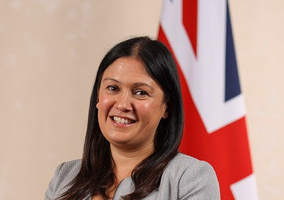The Directory of Social Change (DSC) has published a handbook offering advice to charities on how to respond to incidents of racism and xenophobia.
Its guidance, published this week, Charities Against Hate, sets out practical actions organisations can take “to ensure their safety and continued operation, to reevaluate strategic planning and to join in solidarity with others to push back against racism and other bigotry and discrimination”.
The launch comes after more than 150 charity representatives signed a letter to the prime minister Keir Starmer last month, warning that charity workers are increasingly facing abuse through “far-right activity”.
The letter came after the Charity Commission took the rare step of removing the names of trustees from several refugee charities listed on its register in August due to a potential safety risk.
“There’s an oft-quoted phrase attributed to Edmund Burke: ‘The only thing necessary for the triumph of evil is for good men to do nothing’,” DSC chief executive Debra Allcock Tyler told Civil Society.
“This free-to-all resource is DSC doing something,” she added. “We cannot triumph over the hate that is proliferating in our communities unless we stand together and, more importantly, act together.”
Crisis response
DSC’s new guidance, which is aimed at organisations of all sizes, deals first with steps charities can take when confronted with crisis situations such as incidents of direct discrimination or aggression.
It emphasises the need to ensure people’s immediate safety – and subsequent wellbeing – and to escalate matters to directors and trustees, enabling them to effectively plan any next moves such as holding emergency meetings.
The handbook also underscores the importance of contacting third parties such as the police or charity regulators, where appropriate.
It suggests alternative avenues – such as local resilience forums, or representative bodies – for organisations that may be uncomfortable dealing directly with police.
Strategic planning
Besides dealing with immediate situations, the guide also considers charities’ broader strategy in the context of rising incidents of discrimination and hatred.
Among the measures it suggests are devoting time at board meetings to whether approaches need to be modified, including examples such as financing extra security measures – and how these might be funded.
The handbook advocates reviewing risk registers, prioritising top-level diversity and exploring positive and informative communications via social media.
On the latter point, it stresses the need to have a strong and regularly reviewed social media strategy, to champion dependable information sources and to foreground the wellbeing of people working on social channels.
Looking ahead
Beyond organisation-specific measures, the new guidance explores collective, sector-wide actions that can be taken.
“[Our] response must be transformative and built on the understanding that eradicating racism needs not just legal but structural, institutional and cultural change,” it says.
Among a list of suggestions, the resource mentions joining anti-racism networks, supporting campaigns – including by signing open letters such as the one recently sent to Starmer – and embedding and practising anti-racism.
“To build a future grounded in fairness and equality, we must look beyond individual acts of discrimination and challenge the systems and culture that allow them to persist,” it says.
“Now is the time to stand together, with courage, solidarity and a shared commitment to real change.”












